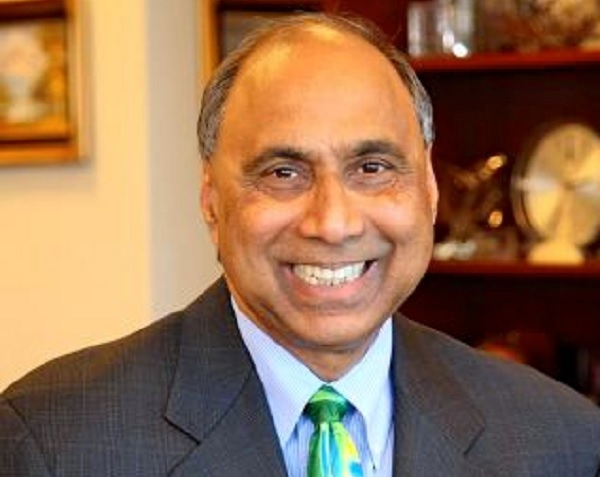
American Big Business Stifling the American Dream
By Frank Islam.
In our book Renewing the American Dream published in 2010, we provided the following conceptualization of the American Dream:
The American Dream is the opportunity each and every citizen has to realize one’s personal potential and to achieve success, generally measured as economic security. The fundamental elements of the dream are getting educated and working hard in order to have a good job that pays decent wages, provides adequate benefits, puts food on the table, a roof over one’s head, and allows for retirement with dignity.
From 1950 to approximately 1975, American big business was a key contributor to the growth of the American economy and the American Dream. Since that time until today, it has played a diminishing role.
In this 18th year of the 21st century, it is not likely that contribution will increase. In fact, it will most likely decrease — perhaps substantially.
This is so for a variety of reasons, including:
The enormous gap between CEO compensation and employee pay
The new tax law
Tax havens
Stock buybacks
Business consolidation
Equilar, an executive compensation consulting firm, did an analysis of CEO compensation in 2017 for both the Associated Press (AP) and the New York Times (Times).
The AP study of the biggest S&P 500 public companies showed that the median pay package for CEOs was $11.7 million and they received an 8.5% raise last year. The Times study of the 200 Highest-Paid CEO rankings showed a median pay package of over $17.5 million.
The Times study disclosed that the pay ratio — a comparison of the total compensation package for the CEO to the median compensation of the other employees in the company — was 275. This is a large number. It pales in comparison, however, when looking at individual cases. For example, as the Times reports:
A Walmart employee earning the company’s median salary of $19,177 would have to work more than a thousand years to earn the $22.2 million that Doug McMillon, the company’s CEO, was awarded in 2017.
These differences are stunning. Are corporate CEOs worth 1,000 times. 500 times, or 100 times more than the median pay of the company’s other employees? In their minds, the minds of the board members, and the minds of shareholders, they probably are.
And, we believe that in certain instances, that a big business leader is worth the multiple he or she earns. In general, however, we believe not. The overriding issue is that many American big businesses today do not have equitable compensation plans and programs.
These programs and plans used to be much more fair and balanced. That is no longer true. Today, they are heavily skewed toward those on the top rungs of the ladder.
The new tax law enhances the potential for increasing that skewing. The Tax Cuts and Jobs Act of 2017 reduced the corporate tax rate from 35 percent to 21 percent.
Corporate taxes have been going down since the Reagan presidency. There is no hard evidence for why this decline started then. But Robert Shiller comments, in an article for the New York Times, that it may have begun at that time because “people may simply have returned to more individualistic, self-centered views of society and the economy.”
Shiller’s hypothesis can’t be tested. But it does make some sense. Especially when one recognizes that the effective tax rate that big businesses pay has been in decline as well. As Shiller points out, “the fraction of profits on corporate income tax taken by federal, state, local and foreign taxes peaked during World War II and has shown a fairly linear, steady and steep downward trend ever since.”
In 2017, the statutory corporate tax rate in the United States, including the top federal rate combined with average state and local taxes, was 38.9%. The effective rate was a mere 18.6%.
The new and substantially reduced statutory tax rate of 21% will undoubtedly lead to a reduced effective tax rate much below the current rate of 18.6%. This lower effective rate will mean lower tax payments and keep far more money in corporate coffers.
In the first five months of this year corporate tax collections “fell by a third from the same period one year ago.” This drop brought the total collection for a comparable period close to a 75-year low.
This means the corporations are already sheltering profits. Those profits could be used for a number of purposes such as job creation, research and development, and wage increases for employees. Recently, however, studies suggest that much of it has gone to people at the top of the organizational totem pole.
The tax cuts may help keep some corporate profits in the United States. In stark contrast, tax havens are used to move business profits offshore to countries with low to near zero tax rates such as Bermuda, the Cayman Islands, and Luxembourg.
A 2014 report from the Citizens for Tax Justice and the U.S. PIRG Education Fund reported that almost one-third of the U.S. Fortune 500 companies had subsidiaries in Luxembourg. American companies that employ tax havens include, but are definitely not limited to: Apple, Amazon, Google, Marriott, Pfizer, Pepsi, and Wells Fargo.
A new study by economists from the University of California, Berkeley and the University of Copenhagen found that multinational corporations headquartered in the U.S. and other higher taxation countries have moved nearly 40% of their profits to tax havens. This ensures that no taxes are paid on these profits in the home country of a business, and that the benefits from those profits flow through only to shareholders and not to the government or the business’ employees.
On its website, Americans for Tax Fairness, using data from various sources, highlights that U.S. corporations dodge $90 billion a year in income taxes using tax havens, and that in 2014 U.S. corporations held $2.1 trillion offshore — much of it in tax havens.
While tax havens are used to shelter profits, stock buybacks are used to ensure the value of a stock. As we noted in a 2015 blog, the buyback process is frequently used to enable the company to hit quarterly earnings per share targets to ensure that executives and major shareholders who get rewarded based upon stock value can maximize their personal returns.
In the Schumpeter column in its June 2 issue, The Economist tried to provide a defense of buybacks. Near the end the column stated, however, “Most criticism is motivated by legitimate concerns about serious problems, including excessively high profits and squeezed wages, the concentrated ownership of firms and the reluctance of the financial industry to back more capital hungry startups.”
Those concerns are legitimate indeed. As just one example of the downside of buybacks, consider General Electric under the leadership of Jeff Immelt.
During his tenure as CEO, GE spent $93 billion buying back stock. Only $7 billion of that $93 billion was acquired between 2008 through 2011 when the price of a share was “mainly in the teens”. The remainder was purchased at prices over $30 per share between 2012 and Immelt’s departure in June of 2017.
Buybacks are inside baseball maneuvers by a big business to manipulate stock value. Industry consolidation is designed to change the nature of the playing field on which the game is played and the rules of the game itself.
David Leonhardt summarizes the extreme threats of big business consolidation in his New York Times article. He writes:
All of these companies have decided that their best strategy for raising profits involves getting bigger. Larger companies simply have more power — to compete with other giants, to restrain workers’ pay, to influence government policy, and, in the long run to increase prices.
Leonhardt points that big companies with more than 10,000 workers employ more than companies with fewer than 50 workers. He then observes that “large companies today are often taking advantage of workers, consumers, taxpayers and small businesses.”
This “taking advantage” is not a 21st century phenomenon. Major U.S. corporations began:
Offshoring manufacturing jobs in the 1960’s and knowledge and service jobs in the 1970’s eventually moving millions of good-paying American jobs to locations around the world through a process euphemistically called “globalization.”
Implementing a steady and almost continuous stream of organizational restructuring and downsizing to reduce the incumbent workforce throughout the 1980’s and ‘90’s.
At the same time, restructuring the nature of jobs from full time employment into temporary and contract employment.
A study by the Congressional Research Service in 2014 disclosed that since 1983, 75 U.S. corporations have moved their tax domiciles outside the U.S. to avoid paying U.S. taxes. A little more than sixty years ago, U.S. corporations provided one-third of federal tax revenue. Currently, they provide around one-tenth of that revenue.
American big business did not create the American Dream, but it used to contribute to the dream’s growth and realization. Today, through its actions and inaction, it is stifling the dream.
This must be reversed. The country is at a pivot point. For America to be America again, big business must step up to the plate and use its clout to benefit not only the CEOs and the shareholders but also their employees, customers, and the communities in which they operate.
America needs big businesses and big business leaders who are committed to an agenda to renew America and the American Dream. Those leaders and organizations can not and should not do it by themselves.
But their absence will condemn the dream to being merely a memory of some long ago time when things were much better and everything seemed possible for America and Americans.






